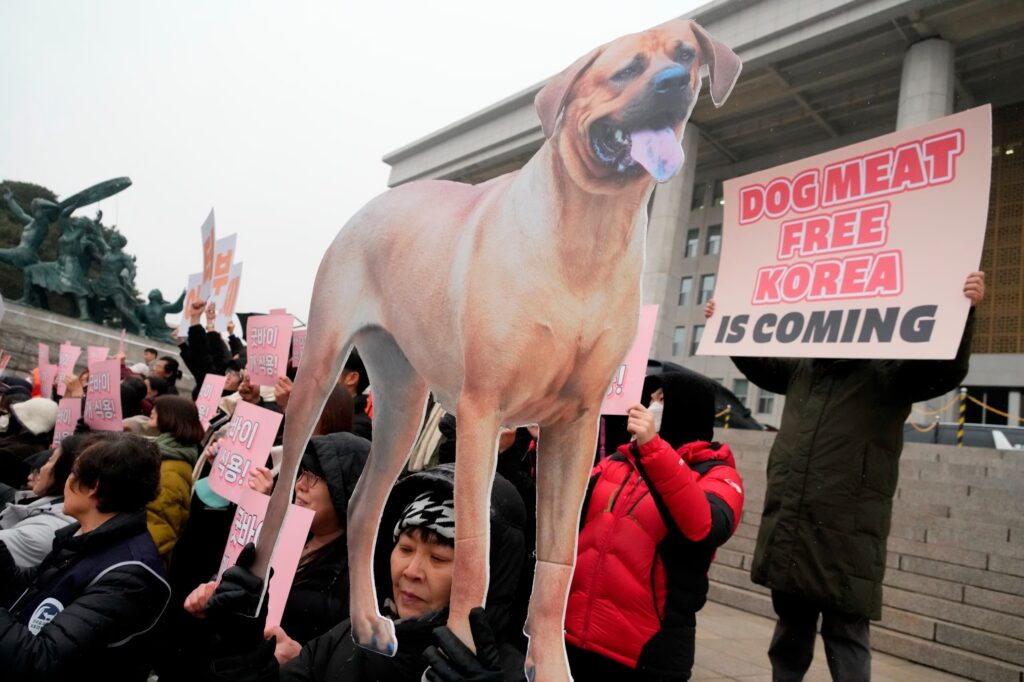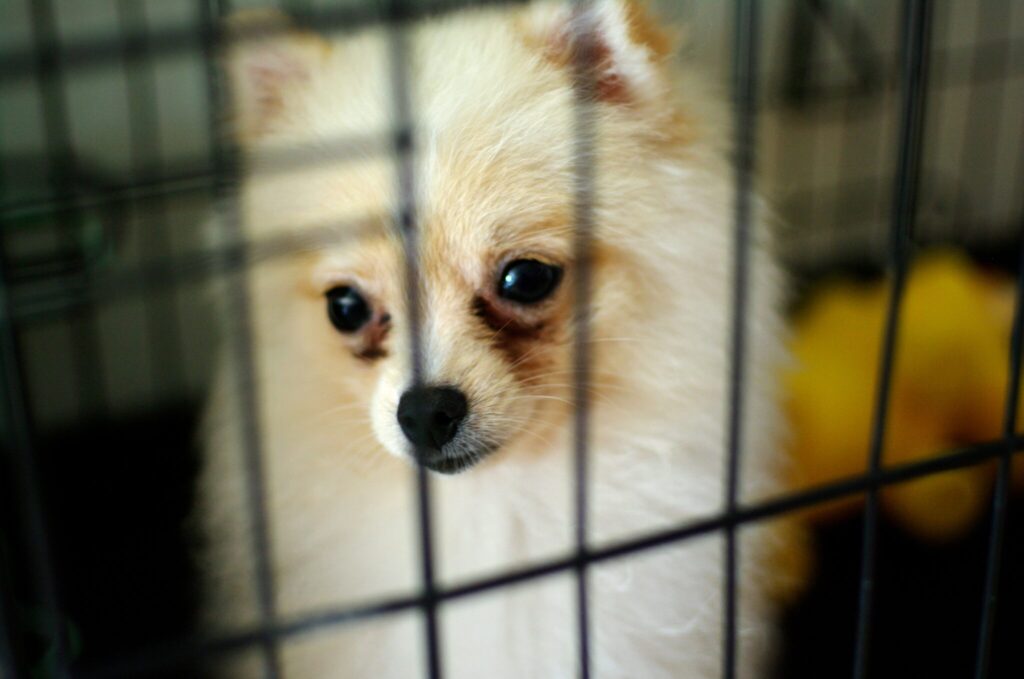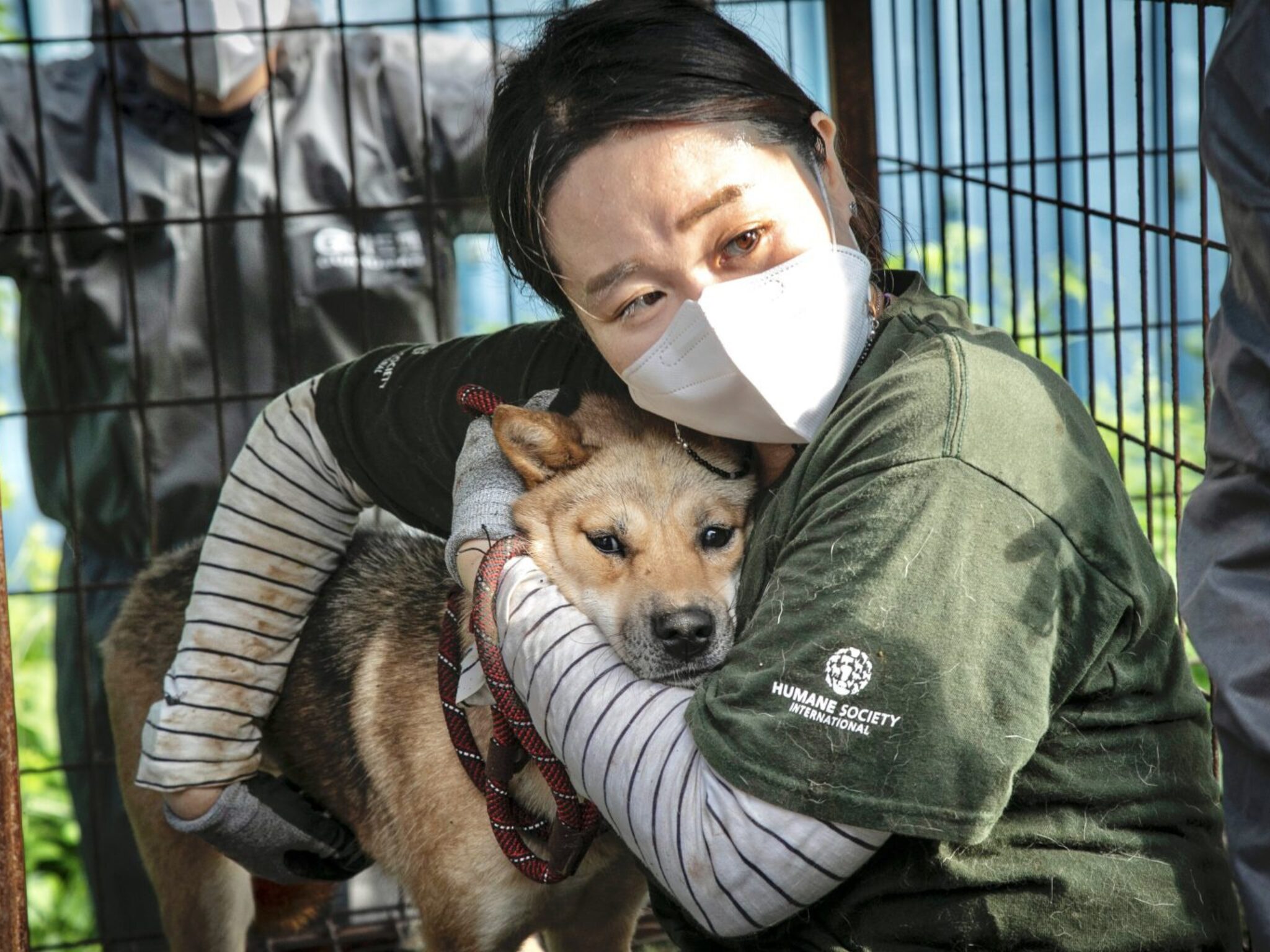No More Dog Meat: Big Animal Rights Win as South Korea Bans Sale in ‘Historic’ Decision
5 Mins Read
In a landmark decision, South Korea’s parliament has banned the country’s dog meat trade, after years of decline in consumption and an increase in pet adoption over the last few decades. It’s a move hailed by youngsters and animal rights campaigners, while industry associations say they’ll lose their livelihoods.
Just over two years on from announcing its intention to ban dog meat, the South Korean parliament has followed through with a historic decision that garnered rare bipartisan support. It will see the breeding, butchery, distribution and sale of dogs for meat be prohibited, putting an end to a centuries-old practice that is no longer popular with the majority of the population.
While the legislation doesn’t prohibit the consumption of dog meat, it effectively draws the curtain on the controversial practice. Boshintang, a dog meat stew, is a delicacy among older South Koreans, but consumption has reduced drastically of late, with rapid urbanisation and globalisation giving rise to the number of people owning pets. According to the agriculture ministry, the number of pet dogs in the country is over six million. (Other estimates say one in four Korean households owned a pet dog in 2022, up from 16% in 2010).
What does South Korea’s dog meat ban entail?
The dog meat ban was endorsed by 208 supporting votes (with two abstentions and zero opposition), making it illegal to set up new dog farms, slaughterhouses, and cooking and processing facilities related to dog meat. It will affect the 1,100 farms and 1,600 restaurants breeding and selling the meat of 570,000 dogs across the country, though estimates by trade body the Korean Association of Edible Dogs put the numbers at 3,500 farms, 3,000 eateries, and 1.5 million dogs.

The bill was first introduced in November 2023, two years after a taskforce was established to explore the ban on dog meat in South Korea. Support for the legislation grew after president Yoon Suk-Yeol took office in 2022. He and first lady Kim Keon Hee are well-known animal lovers, having adopted six dogs and eight cats.
The law will come into force in 2027, giving the industry a three-year grace period to transition away from the trade and find alternative sources of employment. After this, violators will face penalties of up to three years in prison (butchering carries a maximum of three, raising or selling dog meat carries two), alongside a fine of 30 million won ($22,800).
How dog meat fell out of favour in South Korea
While dog meat stew was a summer delicacy thought to help counter fatigue and improve stamina in the hot, humid weather, consumption has fallen dramatically. It’s a result of the increase in pet adoption, as well as awareness about the cruelty – dogs are electrocuted or hanged for their meat – involved in the production.
In a survey released earlier this week by Seoul think tank Animal Welfare Awareness, Research and Education, over 94% of respondents said they hadn’t eaten dog meat in the past year, while about 93% don’t intend to do so in the future.
It echoes a Gallup Korea poll from 2022, which revealed that only 8% of South Koreans had eaten dog meat in the preceding year, a drop from 27% in 2015. Plus, 64% of respondents were against the consumption of the delicacy. And between 2005 and 2014, the number of restaurants serving dog meat was also down 40% due to declining demand, while all of the country’s major dog meat markets have shut down too.

“Our perception of dog meat consumption and animals in general has been changing over the last decades,” Lee Sang-Kyung, campaign manager of the dog meat ban at Humane Society International (HSI) Korea, told CNN. “It was once popular when our food resources (were) scarce, such as during the Korean War, but as the economy develops and people’s perception towards animals and our food consumption, food choices, and things change, then I think it’s the right time to move with the times.”
HSI Korea executive director JungAh Chae added: “We reached a tipping point where most Korean citizens reject eating dogs and want to see this suffering consigned to the history books, and today our policymakers have acted decisively to make that a reality. “
How people have reacted to the ban
This wasn’t the first time South Korea had attempted to ban dog meat, but progress has halted every time due to protests and concerns about the livelihoods of farmers and restaurant owners. This legislation passed by Yoon’s government, however, overcame both these issues.
In November, the trade group Daehan Yukgyeon Hyephoi (Dog Meat Federation) vowed to protest against the proposed move, threatening to release two million dogs outside the president’s office. “Each participant will be there with at least one dog,” the association said. “Whether or not the dogs will be released will be left to the discretion of each participant.”
Meanwhile, the government is also addressing occupational fears with compensation packages to help businesses move out of the industry. The agriculture ministry has confirmed it will consult with businesses to ensure they can operate in a stable manner and provide “maximum support within a reasonable range”.
“Based on our experience talking to industry workers at HSI, we knew that the majority of dog meat farmers and slaughterers, they want to leave the industry but they don’t know how to leave the industry,” explained Lee. “But now with the bill, having a compensation package [and] financial support from the government, I think it’s the right time to leave the industry for them as well.”
While no details have been released about the amount, the Korean Association of Edible Dogs is seeking at least two million won ($1,520) per dog over the next five years, on top of the expenses for facilities that will become defunct. Based on its estimates (which are much higher than the agriculture ministry’s), this would equate to a compensation sum of $2.28B.
The trade group has previously criticised the government for a failure to communicate or discuss the ban with farmers. “No one has the right to rob 10 million [dog meat consumers] of their right to food and the right to survival of one million livestock dog farmers and workers,” it said in November.
But animal rights organisations have hailed the move. “While my heart breaks for all the millions of dogs for whom this change has come too late, I am overjoyed that South Korea can now close this miserable chapter in our history and embrace a dog-friendly future,” said JungAh, who called it “history in the making”.
“I never thought I would see in my lifetime a ban on the cruel dog meat industry in South Korea, but this historic win for animals is testament to the passion and determination of our animal protection movement.”



